#j hillis miller
Text
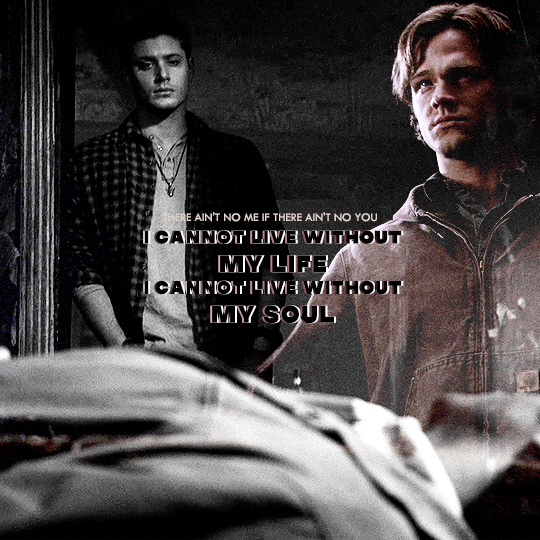
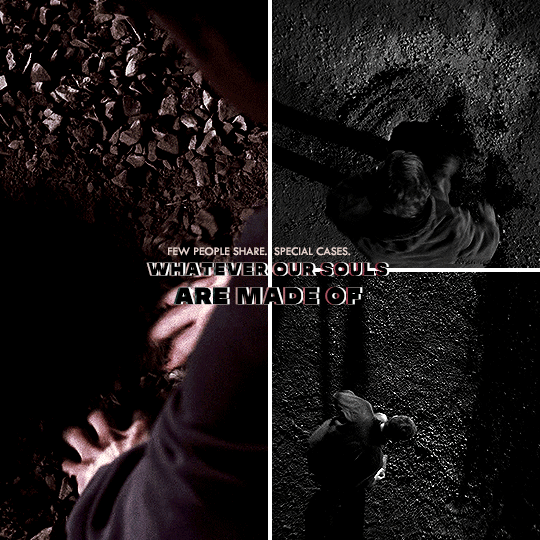
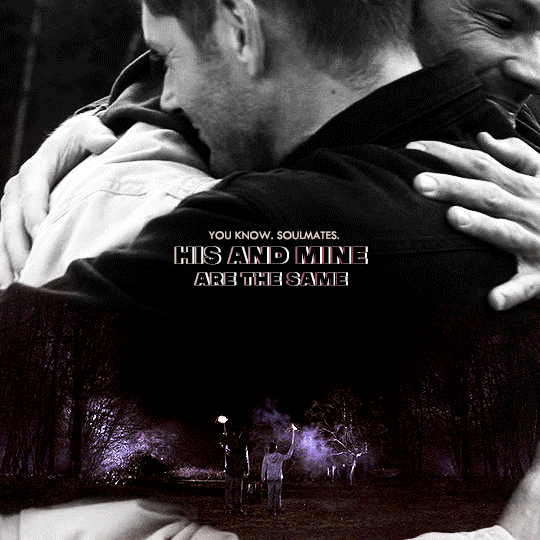
The attraction and shared isolation of the siblings locates the work as operating in the tradition of Wuthering Heights, which Finney describes as an example of ‘the siblings-as-soulmates configuration’ […] in terms of the protagonists’ common status as outsiders and their incestuous love that transcends the values of the society that rejects them and the event of death itself. [...]
The consequences of denying the incestuous element of Catherine and Heathcliff ’s relationship are a denial of their love and a reduction of it to a pathological egotism. When, for example, Thormählen states that ‘I have avoided referring to the bond between Catherine and Heathcliff as “love” … because the nature of their passions fits no description of the concepts known to me’, she disregards the established conventions of Gothic and Romantic incest in which the representation of their love is, in part, grounded.
— J. Diplacidi, Gothic incest: Gender, sexuality and transgression
Cathy and Heathcliff reach in death what they possessed in this world when they were unself-conscious children, and did not know of their separateness. They reach peace not through obedient acceptance of isolation, but through the final exhaustion of all their forces in the attempt to reach union in this life. Their heroism is, in Georges Bataille’s phrase, an “approbation of life to the point of death.”
— J. Hillis Miller, The Disappearance of God: Five Nineteenth Century Writers
SUPERNATURAL + WUTHERING HEIGHTS
for @wincestwednesdays prompt: American Gothic (pt 2: Endings)
#spnedit#samdeanedit#wincest#wincest wednesday#supernatural#wuthering heights#whatever it is#**#complementary to the set i posted yesterday
273 notes
·
View notes
Note
Do you have a list of your favourite essays/criticism on Wuthering Heights? I really enjoy your commentary. Thank you so much!!!
Thanks for your kind words ;)
I don’t exactly have a list but some good essays that I like:
“Emily Brontë In and Out of Her Time” - Nancy Armstrong
“A Modern Way With The Classic” - Frank Kermode
“Wuthering Heights” - Andrea Dworkin
“The Magnanimity of Wuthering Heights” - Joyce Carol Oates
Everything written by Graeme Tytler
“The Ellipses of Interpretation” - J. Hillis Miller
“Impossible Love and Commodity Culture in Emily Brontë’s Wuthering Heights” - Daniela Garofalo
The things written by Inga Stina-Ewbank
“Irresistible Narrative: The Art of “Wuthering Heights”” by Professor Douglas Jefferson
“Heathcliff as Fetish in “Wuthering Heights”” - Dana Medoro
“The Return to Heath” - Henry Staten
“Analyzing Wuthering Heights” (Book) - Nicholas Marsh
“The Structure of Wuthering Heights” - C. P. Sanger
Alex Tankard’s chapter on Linton Heathcliff in their book “Tuberculosis and Disabled Identity in Nineteenth Century Literature”
All 19th century book reviews
I like Erendiz Atasü and Neslihan Cangöz’s essays but they are in Turkish - but you can find quotes from them on my blog
I do not agree with everything in these essays, which is not possible anyway since they often have different interpretations. And I do have criticisms on most of them. But they are all good works I enjoyed reading. And I am sure I am forgetting some.
If you are writing a paper on Wuthering Heights Anon, I must warn you that most of the above essays are quite old, they tend to be from the second half of 20th century. You should probably quote from more recent works in a paper you are writing today.
43 notes
·
View notes
Text

"Wuthering Heights" and the Ellipses of Interpretation by J. Hillis Miller
20 notes
·
View notes
Text
A good reader is someone on whom nothing in a text is lost, as James said a good writer is in relation to life: “Try to be one of those on whom nothing is lost.” (From On Literature, J. Hillis Miller)
0 notes
Text
"To live is to read, or rather to commit again and again the failure to read which is the human lot."
from The Ethics of Reading by J. Hillis Miller
0 notes
Quote
If the mystic says: “I am because I am God,” or if Descartes says he is because he thinks, Cathy must say: “I am Heathcliff, therefore I exist.” Her hyperbole is the climax and endpoint of the long tradition making love a private religion in which the loved one is God and there is a single worshipper and devotee.
J. Hillis Miller
#J. Hillis Miller#wuthering heights#catherine earnshaw#heathcliff#emily bronte#interesting...#analysis#literature#thoughts#emily brontë
849 notes
·
View notes
Photo
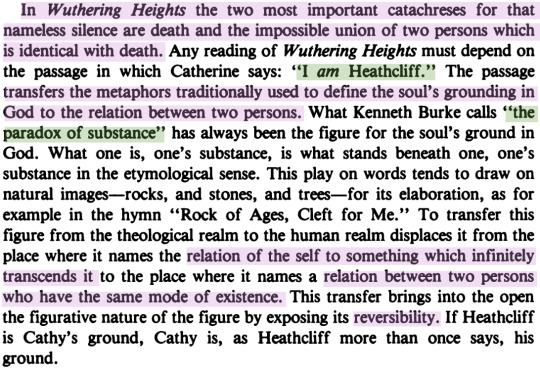
J. Hillis Miller, Wuthering Heights and the Ellipses of Interpretation
#wuthering heights#j. hillis miller#go to the orig post for the citation it got deleted on accident#m. quotes#it's about. the REVERSIBILITY of a human relationship that is exaggerated to the level of the divine
101 notes
·
View notes
Text
[Catherine and Heathcliff] are united in childhood, separated in adulthood, and reach union again only in the boundless realm of death. Their love moves through a process of union, separation and reunion on a triple level which appears often in writings in the romantic tradition, and is like the dialectic of Hegel or like Novalis’ vision of human life and history.
J. Hillis Miller, The Disappearance of God: Five Nineteenth-Century Writers
#there is a chance i have posted this excerpt before... i need to tag better#J. Hillis Miller#life/time as circular..
31 notes
·
View notes
Photo

This is the public-facing rhetorical move par excellence of the radical academic theorist: revel in your radicalism in the seminar room and peer-reviewed journals, but describe your program in the most bland, banal, who-could-possibly-object way for general audiences. Did you know that Marxism is “a refusal to take things for granted”? Why not “follow your dreams” while we’re at it? Never mind the part where “[w]e shall put you in front of a good wall and shoot you,” to quote a poem of Brecht’s. You see this today, too, with the left-identitarians, thinkers who have a nihilistically extensive critique of liberal society—who posit in fact the urgent need to destroy this society—and then, when queried by the public or its representatives, will reply that it’s just about treating people fairly, dude.
But to give the formulation its due, if you truly take nothing for granted, if you never silence the critical intellect, you will in your own mind delegitimize your state and every state, the lives of your neighbors and then your very own life, and you will shoot yourself in the head, as in the aforementioned fictional case of Leo Naphta and the nonfictional one of Mitchell Heisman, possibly after you’ve shot some others à la Brecht or Naptha’s model Lukács, because the critical intellect left to its own devices will annul first the world and then itself. Which is why the profoundest thinkers, i.e., novelists and poets and playwrights, have always suggested a plunge into contact with reality to arrest deconstructive thought processes, from Hamlet to Herzog. Make art, make crafts, have sex, have a child, take a walk, take a drink, dig a garden, plant a tree, get revenge, get a cat—anything at all to remind you that the critical intellect allows itself to be annihilatingly disappointed at the world’s corruption only because it has lost touch with it, literally, and that criticism’s proper service to humanity is as guide and guardrail to action, not as universal solvent.
(Note the details of Hamlet’s example: he only had to kill one person, but deconstructive thought processes made him responsible in whole or part for at least four other deaths and made him suicidal as well; only when he resolved to “let be” could he strike his sole legitimate target, but by then the collateral damage was so great that he forfeited his own life and his country was conquered. A parable for the would-be revolutionary.)
Deconstruction at its best reminded us of these truths, as implied by the quotation from Montaigne that introduces Derrida’s epochal essay on “Structure, Sign, and Play,” but because it was premised on the very purity it set out to debunk—the centered structure organized by neat binary oppositions—it became a very purist argument for impurity. There’s always another binary to undermine over the horizon, always something else and more you could be doing to decenter; so deconstruction finally lent itself to the deranged purity spirals that have marred intellectual life recently. What deconstruction says about strong texts’ essential non-essentialism is basically right, but strong texts achieve this irreducible complexity on tides of emotion that criticism of all sorts has always been bad at capturing, making them elements of reality as well as interpretations of it.
I append all of the above to Leo Robson’s excellent essay-obituary for J. Hillis Miller, from which I draw the opening quotation. This witty catalogue is my favorite paragraph in the piece:
You might say that the effect of deconstruction, in its literary-critical mode, was to augment a presiding canon of largely B-writers (Baudelaire, Benjamin, Borges, Blanchot, etc) with a group of H-figures (Hölderlin, Hegel, Heidegger, Hopkins, to some degree Hawthorne and Hardy), and to replace a set of keywords beginning ‘s’ – structure, sign, signifier, signified, semiotics, the Symbolic, syntagm, Saussure – with a vocabulary based around the letter ‘d’: decentring, displacement, dislocation, discontinuity, dedoublement, dissemination, difference and deferral (Derrida’s coinage ‘différance’ being intended to encompass both). And there was also a growing role for ‘r’: Rousseau, rhetoric, Romanticism (one of de Man’s books was The Rhetoric of Romanticism), Rilke, and above all reading, a word that appeared, as noun and participle, in titles of books by de Man, Hartman, and most prominently Miller: The Ethics of Reading, Reading Narrative, Reading for Our Time, Reading Conrad.
Also this fun fact: “as late as 2012, [Miller] had never read anything by Samuel Richardson.” I am always fascinated by the gaps in brilliant scholars’ reading, and the more time I spent in academe the more I noticed how large the gaps really were. A generalist-dilettante, I try to read a little bit of everything and am consequently bad at being a completist of any one subject or author that a scholar necessarily is. I’ve read Pamela but not Clarissa; for that matter, I’ve read around in Derrida and De Man but, except for his rather psychedelic 2002 primer On Literature, not so much in the late and lamented J. Hillis Miller.
Further reading: my short story, “White Girl,” a dramatization of deconstructive thought processes in action, partially inspired by what I was seeing right here on Tumblr a little less than a decade ago.
14 notes
·
View notes
Text
Clyde Water/The Ballad of the Drowned Lovers:
“And now we’ll sleep in Clyde Water
Like sister and like brother”
César Vallejo:
“[…] In one grave
we two will sleep, as two siblings.”
J. Hillis Miller:
“Cathy and Heathcliff reach in death what they possessed in this world when they were unself-conscious children, and did not know of their separateness".
65 notes
·
View notes
Text
Literature and Philosophy
MA IN LITERARY STUDIES
Literature and Philosophy (EN71021A): Course Outline Spring 2019
Tutor: Julia Ng
Teaching Mode: 2-hour seminar
Seminar Wednesday 9-11
St James Hatcham G02
NB: Please acquire a print copy of Walter Benjamin’s Origin of German Tragic Drama, trans. J. Osborne (Verso, 1998/2009), as we will be studying this text in its entirety. Other materials for this course will be posted to the course’s learn.gold page.
Week 1, Wednesday 16
th
January – Introduction; “intention” in Brentano and Husserl
Introductory discussion
Franz Brentano, “The Distinction between Mental and Physical Phenomena,” in Psychology from an Empirical Standpoint [1874], trans. A. C. Rancurello, D. B. Terrell and L. L. McAlister (London: Routledge & Kegan Paul, 1995), Bk. 2, chap. 1, pp. 59-77.
Edmund Husserl, “Philosophy as a Rigorous Science," in Phenomenology and the Crisis of Philosophy, trans. Quentin Lauer (Harper & Row, 1965), section on “Naturalistic Philosophy,” pp. 79-122.
Week 2, Wednesday 23th January – Husserl
Edmund Husserl, “Philosophy as a Rigorous Science," in Phenomenology and the Crisis of Philosophy, trans. Quentin Lauer (Harper & Row, 1965), excerpt from “Historicism and Weltanschauung Philosophy,” pp. 122-129.
Edmund Husserl, Ideas Pertaining to a Pure Phenomenology and to a Phenomenological Philosophy, I, trans. F. Kersten (Martinus Nijhoff, 1983), §§87-90, 93-95.
Week 3, Wednesday 30th January – Benjamin
Benjamin, OGT, “Epistemo-Critical Prologue”
References
Plato, Symposium
Scheler, “On the Tragic”
Wek 4, Wednesday 6th February – Benjamin
Benjamin, OGT, “Trauerspiel and Tragedy,“ I
References
Schmitt, Political Theology
Gryphius, Leo Armenius
Calderon, Life is a Dream
Week 5, Wednesday 13th February – Benjamin
Benjamin, OGT, “Trauerspiel and Tragedy,“ II
References
Nietzsche, The Birth of Tragedy
Lukács, Soul and Forms
Rosenzweig, The Star of Redemption
Scheler, “On the Tragic”
Benjamin, “Fate and Character”; “Toward the Critique of Violence”
Week 6, Wednesday 20th February
Tutorial Week – No seminar
Week 7, Wednesday 27th February – Benjamin
Benjamin, OGT, “Trauerspiel and Tragedy,“ III; „Allegory and Trauerspiel,“ I
References
Shakespeare, Hamlet
Panofsky and Saxl on Dürer’s Melancholia I
Giehlow on Melancholia I; The Humanist Interpretation of Hieroglyphs
Warburg
Freud, “Mourning and Melancholia”
Week 8, Wednesday 6th March – Benjamin
Benjamin, OGT, “Allegory and Trauerspiel,“ II and III
References
Benjamin, “On Language as Such and on the Language of Man”; “The Role of Language in Trauerspiel and Tragedy”; “Trauerspiel and Tragedy”
Gryphius, Leo Armenius
Week 9, Wednesday 13th March – Adorno
Adorno, “The Actuality of Philosophy” (May 2, 1931), in Telos 31 (1977), 120-133.
Adorno, “The Idea of Natural History” (1932), in Telos 60 (1984), 111-124.
Week 10, Wednesday 20th March – Adorno
Adorno, “III.2 World Spirit and Natural History,” in Negative Dialectics, trans. E.B. Ashton, Continuum, 1973, pp. 300-360.
Week 11, Wednesday 27th March – Conclusion
General discussion
Preparatory Reading
Gryphius, Leo Armenius
Calderon, Life Is A Dream
Shakespeare, Hamlet
Hofmannsthal, The Tower
Further Reading
Benjamin
On Language as Such and on the Language of Man (1916)
The Role of Language in Trauerspiel and Tragedy (1916)
Trauerspiel and Tragedy (1916)
Fate and Character (1919)
Toward the Critique of Violence (1921)
Calderon's El mayor monstrue, los celos and Hebbel's Herodus and Mariamne (1923)
General
Adorno, Theodor. "Portrait of Walter Benjamin," in: Prisms. Trans. Samuel and Shierry Weber. MIT Press, 1981.
Adorno, Theodor. Against Epistemology: A Metacritique. Trans. Willis Domingo. Oxford: Blackwell, 1982.
Adorno, Theodor, and Walter Benjamin. The Complete Correspondence, 1928-1940. Ed. Henri Lonitz. Trans. Nicholas Walker. Cambridge, MA: Harvard UP, 1999.
Agamben, Giorgio. Homo Sacer: Sovereign Power and Bare Life, Stanford UP, 1998.
Cascardi, Anthony J. "Comedia and Trauerspiel: On Benjamin and Calderón." Comparative Drama 16:1 (1982), 1-11.
Cobb-Stevens, Richard. “Husserl on Eidetic Intuition and Historical Interpretation,” American Catholic Philosophical Quarterly 66 (1992): 261–75.
Comay, Rebecca. "Mourning Work and Play," in Research in Phenomenology 23 (1993), pp. 105-130.
Drummond, John. “Husserl on the Ways to the Performance of the Reduction,” Man and World 8 (1975): 47–69.
Drummond, John. “The Structure of Intentionality,” in The New Husserl, ed. D. Welton (Bloomington: Indiana University Press, 2003), 65–92.
Derrida, Jacques. "Force of Law."
Fenves, Peter. "Marx, Mourning, Messianity," in: Hent de Vries/Samuel Weber (Hg.): Violence, Identity and Self-Determination, Stanford, 1997, 253–270.
Fenves, Peter. "Tragedy and Prophecy in Benjamin’s 'Origin of the German Mourning Play,'" in: Arresting Language. From Leibniz to Benjamin, Stanford UP, 2001, 227–248.
Foster, Roger. Adorno: The Recovery of Experience. SUNY Press, 2007.
Freud, Sigmund. "Mourning and Melancholia," The Standard Edition of the Complete Psychological Works of Sigmund Freud, XIV. The Hogarth Press, 1957, pp. 237-258.
Friedlander, Eli. "On the Musical Gathering of Echoes of the Voice: Walter Benjamin on Opera and the Trauerspiel." The Opera Quarterly, vol. 21 no. 4 (2005), pp. 631-646.
Geulen, Eva. The End of Art : Readings in a Rumor after Hegel. Stanford University Press, 2006.
Giehlow, Karl, and Robin Raybould. The Humanist Interpretation of Hieroglyphs in the Allegorical Studies of the Renaissance with a Focus on the Triumphal Arch of Maximilian I. Brill, 2015.
Hamacher, Werner. "Guilt History."
Hanssen, Beatrice. Walter Benjamin's Other History : of Stones, Animals, Human Beings, and Angels. University of California Press, 1998.
Hanssen, Beatrice. "Philosophy at Its Origin: Walter Benjamin’s Prologue to the 'Ursprung des deutschen Trauerspiels,'" in: Modern Language Notes 110 (1995), 809–833.
Haverkampf, Hans-Erhard. Benjamin in Frankfurt : Die Zentralen Jahre 1922-1932. Societäts-Verlag, 2016.
Helmling, Steven. "Constellation and Critique: Adorno's Constellation, Benjamin's Dialectical Image." Postmodern Culture 14:1 (2003).
Johnson, Barbara, The Wake of Deconstruction, Cambridge, Mass, 1994.
Johnson, Christopher D. “Configuring the Baroque: Warburg and Benjamin.” Culture, Theory and Critique, vol. 57, no. 2, 2016, pp. 142–165.
Kantorowicz, Ernst H. The King's Two Bodies : a Study in Mediaeval Political Theology. Princeton University Press, 1997.
Klibansky, Raymond; Panofsky, Erwin; Saxl, Fritz. Saturn and Melancholy : Studies in the History of Natural Philosophy, Religion, and Art. Basic Books, 1964.
Lacan, Jacques. "Desire and the Interpretation of Desire in Hamlet," in: Shoshana Felman (ed.): Literature and Psychoanalysis. The Question of Reading: Otherwise, Baltimore, 1982, 11–52.
Lindner, Burkhardt. "Habilitationsakte Benjamin. Über ein 'akademisches Trauerspiel' und über ein Vorkapitel der "Frankfurter Schule" (Horkheimer, Adorno)/"Walter Benjamins's attempt of a Habilitation. On an 'academic Trauerspiel' and on other preliminaries of the "Frankfurter Schule" (Horkheimer, Adorno)." In: Zeitschrift für Literaturwissenschaft und Linguistik 14.53 (1984): 147-166.
Lukács, György. Soul and Form. MIT Press, 1978.
Lukács, György. Theory of the Novel.
Marin, Louis. Food for Thought. Johns Hopkins University Press, 1997.
McFarland, James. “Presentation.” Constellation: Friedrich Nietzsche and Walter Benjamin in the Now-Time of History. Fordham University Press, 2012, pp. 67-102 (Chapter 2).
McLaughlin, Kevin. "Benjamin's Barbarism." The Germanic Review: Literture, Culture, Theory, 81:1 (2006), 4-20.
Menke, Christoph, and James. Phillips. Tragic Play : Irony and Theater from Sophocles to Beckett. Columbia University Press, 2009.
Merback, Mitchell B. Perfection's Therapy : an Essay on Albrecht Dürer's Melencolia I. Zone Books, 2017.
Miller, J. Hillis. »The Two Allegories«, in: Morton Bloomfield (ed.): Allegory, Myth and Symbol, Cambridge, 1981, 355–370.
Mininger, J. D., and Jason Michael Peck. German Aesthetics : Fundamental Concepts from Baumgarten to Adorno. Bloomsbury, Bloomsbury Academic, 2016.
Nägele, Rainer. Theater, Theory, and Speculation: Walter Benjamin and the Scenes of Modernity, Baltimore, 1991.
Newman, Jane O. Benjamin's Library: modernity, nation, and the Baroque. Cornell UP, 2011.
Newman, Jane O. "Tragedy and 'Trauerspiel' for the (Post-)Westphalian Age." In: Renaissance Drama 40 (2012), pp. 197-208.
Newman, Jane. “Enchantment in Times of War: Aby Warburg, Walter Benjamin, and the Secularization Thesis.” Representations, vol. 105, no. 105, 2009, pp. 133-0_4.
Nietzsche, The Birth of Tragedy
Pensky, Max. Melancholy Dialectics: Walter Benjamin and the Play of Mourning. U Mass Press, 1993.
Plato, Symposium.
Rosenzweig, Franz, and Barbara Ellen Galli. The Star of Redemption. University of Wisconsin Press, 2005.
Scheler, Max. "On the Tragic." CrossCurrents 4.2 (1954), 178-191.
Schmitt, Carl, et al. Hamlet or Hecuba : the Intrusion of the Time into the Play. Telos Press, 2009.
Schmitt, Carl. Political Theology : Four Chapters on the Concept of Sovereignty. University of Chicago Press, 2005.
Szondi, Peter. An Essay on the Tragic. Stanford University Press, 2002.
Weber, Samuel. Benjamin's -Abilities. Harvard University Press, 2008.
Willard, Dallas. “The Paradox of Logical Psychologism: Husserl’s Way Out,” American Philosophical Quarterly 9 (1972): 94–100.
Woodfield, Richard (ed.) Art history as cultural history: Warburg's projects. G+B Arts International, 2000.
Learning Outcomes
- You will have a grasp of the place of literature in the modern Continental philosophy tradition.
- You will have a good understanding of how this tradition challenges and transforms Classical philosophical conceptions of literature.
- You will be able to expound and analyse the textual and conceptual styles of the three key thinkers on the course.
- You will have a sound grasp of the literature of and on both the broad relationship between literature and philosophy, and the three specific thinkers addressed on the module.
- You will be able to use the ideas and texts explored in the module to inform your readings in literary and cultural texts.
Assessment Criteria
- Students should show a clear command of traditional conceptions of the literary in the history of philosophy, and of how the modern Continental tradition challenges these.
- Students should show a detailed critical knowledge of at least one of the module’s key thinkers’ ideas.
- Students should show a knowledge and capacity to use a good range of secondary literature on both general issues in the field and on the specific thinkers and texts they address.
- Students should be able to read the relevant texts from both literary critical and conceptual perspectives.
- Students should show an awareness of the relevance of the issues and texts studied on the course to contemporary debates in literary theory.
8 notes
·
View notes
Text
“In the coming ages an informed citizenry in our democracy will be one that can read and think clearly about all the signs that at every moment bombard us through eye and ear. Figuring out the best ways to ensure the existence of this citizenry will be a great responsibility, but also an exhilarating opportunity.” - J. Hillis Miller
3 notes
·
View notes
Text
“This novel has been a strong enticement for readers. It exerts great power over its readers in its own violence, and in its presentation of striking psy chological, sociological, and natural detail. It absorbs the reader, making him enwrapped or enrapt by the story. In spite of its many peculiarities of narrative technique and theme, it is, in its extreme vividness of circumstantial detail, a masterwork of "realistic" fiction. It obeys most of the conventions of Victorian realism, though no reader can miss the fact that it gives these conventions a twist. The reader is persuaded that the novel is an accurate picture of the material and sociological conditions of life in Yorkshire in the early nineteenth century. The novel to an unusual degree gives that pleasure appropriate to realistic fiction, the pleasure of yielding to the illusion that one is entering into a real world by way of the words on the page.”
(Wuthering Heights: Repetition and the "Uncanny", J. Hillis Miller)
Wuthering Heights really gives the impression that it is “real” with its timeline where you can work out when the events happened almost to the date and all of its technical details which are clearly planned out and accurate. But it is also completely insane and has a main character about whom we don’t know the most basic things and whose name is a hand-me-down of his love interest’s dead brother. Just, the contrast.
24 notes
·
View notes
Text

The disappearance of God by J. Hillis Miller
There was once a girl who said, “When I grow up, I’m going to marry Daddy.” I wonder who she actually ended up marrying. Blood relationships are the only relationships we have where people want us exactly as we are. To a child, the daddy who affirms everything about her is her prince and the “world” itself. So the words, “When I grow up, I’m going to marry Daddy” mean the same thing as “I’m going to make the whole world mine.” However. In the process of becoming an adult, there comes a moment for each of us when we’re rejected by the “world.” The person we were so in love with dumps us. The school we wanted to go to so badly doesn’t let us in. The career we were trying for doesn’t pan out. Everyone has a moment like that. And that’s okay. There’s no such thing as something which mustn’t be lost. Everyone has the freedom to love someone or something. We are free. We mustn’t forget that.
Ikuhara's commentary on episode 32 'Her Tragedy' of RGU
27 notes
·
View notes
Text
Reading de Nacht Reading 2018
my favourite books of the year
my overall favourite book of the year:
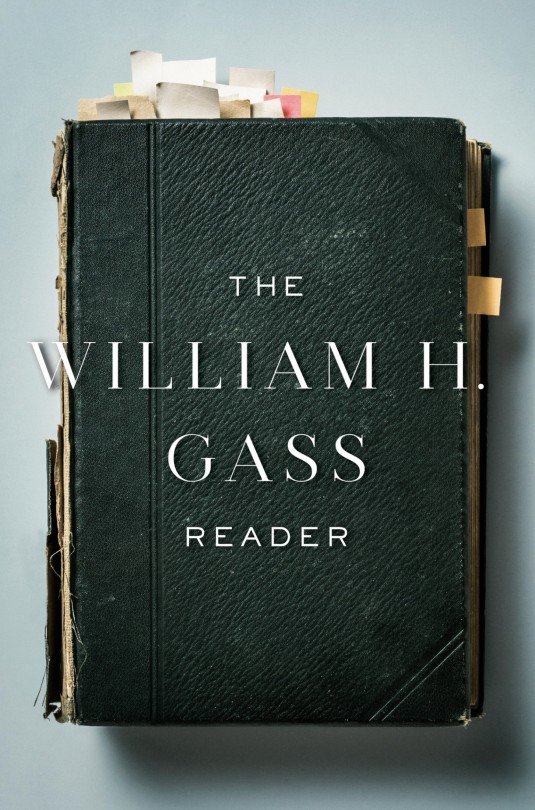
wiliam h gass "the william h gass reader" (2018)
post-cyberpunkstompf:
01 cixin liu "ball lightning" (2018)
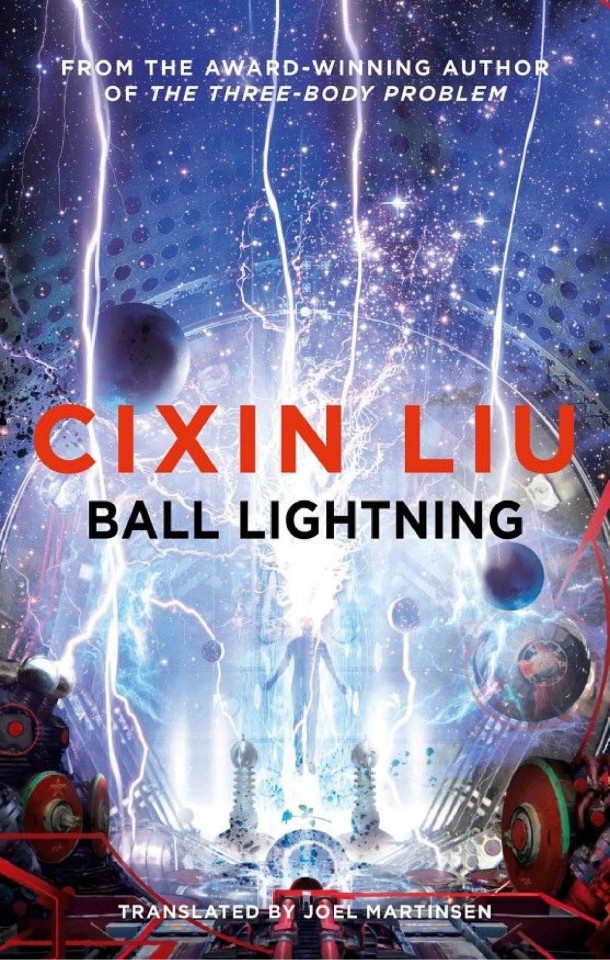
02 kim stanley robinson "red moon" (2018)
03 dave hutchinson "europe at dawn" (2018)
+ dave hutchinson "shelter (the aftermath 01)" (2018)
04 paul kincaid "ian m banks (modern masters of science fiction)" (2017)
05 hannu rajaniemi "summerland" (2018)

06 m john harrison "you should come with me now: stories of ghosts" (2017)
07 wade rousch (ed) "twelve tomorrows (2018)
08 christopher moore "noir" (2018)
09 jonathan strahan (ed) "infinity's end" (2018)
+ jonathan strahan (ed) "the best sf & f of the year, vol XII" (2018)
10 neil clarke (ed) "the final frontier" (2018)
+ neil clarke (ed) "the best sf of the year vol III" (2018)

11 gardner dozois (ed) "the year's best sf: thirty-fifth annual collection" (2018)
12 steve toutonghi "side life" (2018)
13 mike ashley (ed) "lost mars: the golden age of the red planet" (2018)
14 mary robinette kowal "the calculating stars: a lady astronaut novel" (2018)
15 mingwei song & theodore huters (eds) "the reincarnated giant:
an anthology of twenty-first century chinese science fiction" (2018)
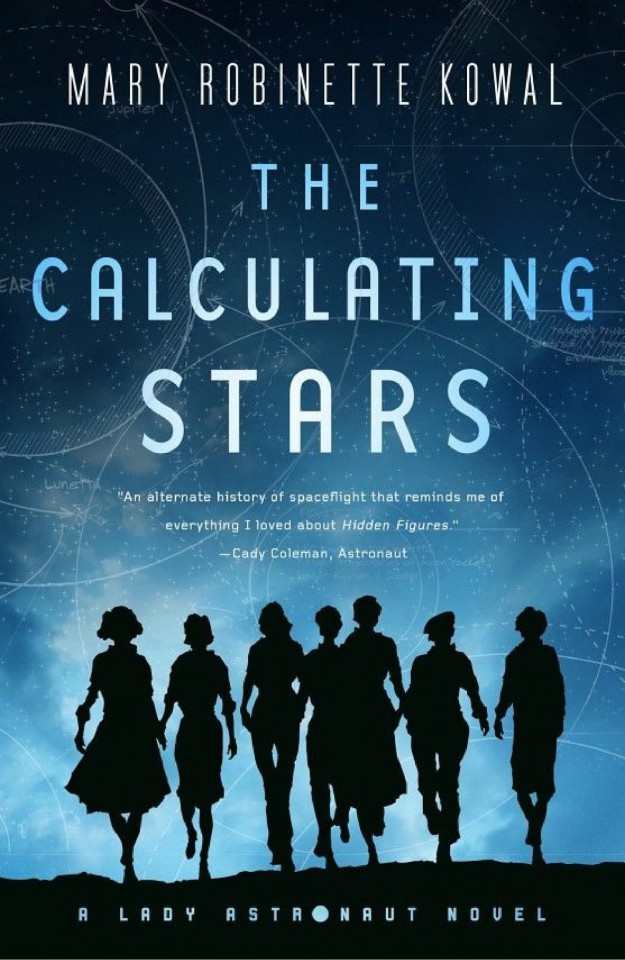
16 john zakour & lawrence ganem "the peach-blonde bomber" (2018)
17 becky chambers "record of a spaceborn few" (2018)
18 yoon ha lee "revenant gun" (2018)
19 derek künsken "the quantum magician" (2018)
20 gregory benford "rewrite" [arc] (2019)
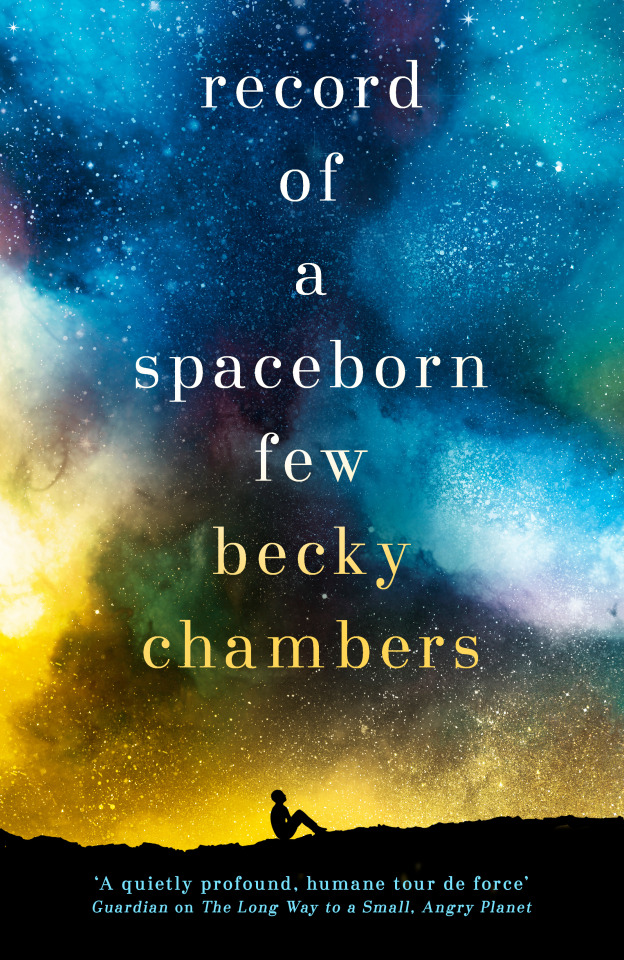
21 richard k morgan "thin air" (2018)
22 charles stross "the labyrinth index" (2018)
23 john varley "irontown blues" (2018)
24 peter watts "the freeze-frame revolution" (2018)
25 karl schroeder "the million" (2018)

26 drew williams "the stars now unclaimed" (2018)
27 peter f hamilton "the salvation" (2018)
28 neal asher "the soldier" (2018)
29 nick mamatas "the people's republic of everything" (2018)
30 s j morden "one way" (2018)

31 gareth l powell "embers of war" (2018)
32 alex white "a big ship at the end of the universe" (2018)
+ alex white "a bad deal for the whole galaxy" (2018)
33 s k dunstall "stars unchartered" (2018)
34 catherynne m valente "space opera" (2018)
35 alastair reynolds "elysium fire" (2018)
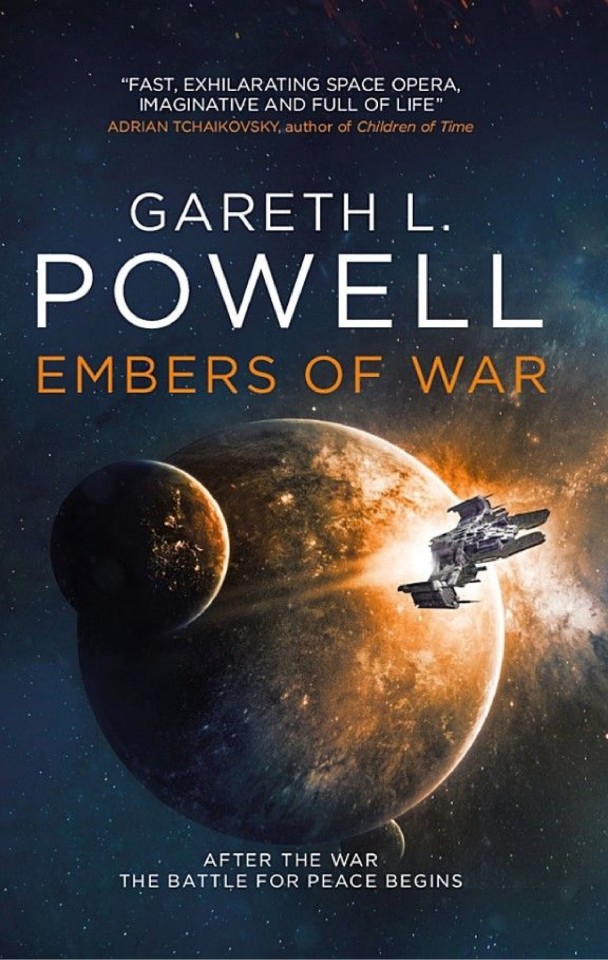
36 charles stross "dark state" (2018)
37 n k jemisin (ed) "the best american sf & f 2018" (2018)
38 jack mcdevitt "the long sunset" (2018)
+ jack mcdevitt "a voice in the night" (2018)
39 elizabeth moon "into the fire" (2018)
40 r.e. stearns "barbary station" (2017) /
steven erikson "willfull child III: the search for spark" (2018)

polarstompf:
01 david hewson "the savage shore" (2018)

ex aequo
andrea camilleri "the pyramid of mud" (2018)
+ andrea camilleri "death at sea: montalbano's early cases" (2018)

02 mirko zilahy "de schaduw" (2017)
+ mirko zilahy "de mythe van de dood" (2018)
03 mick herron "london rules" (2018)
+ mick heron "the drop" (2018)
04 volker kutscher "babylon berlin" (2017)
+ volker kutscher "the silent death" (2017)
+ volker kutscher "goldstein" (2018)
05 chris petit "pale horse riding" (2017)

06 edgar cantero "this body's not big enough for both of us" (2018)
07 ian rankin "in a house of lies" (2018)
08 philip kerr "greeks bearing gifts" (2018)
09 jack grimwood "nightfall berlin" (2018)
10 dolan cummings "the existential leap: a crime story" (2017)

11 ann van loock "de expo '58 moorden" (2018)
12 massimo carlotto "master of knots" (2004)
13 joseph knox "sirens" (2018)
+ joseph knox "the smiling man" (2018)
14 geir tangen "het meesterwerk" (2017)
15 kate atkinson "transcription" (2018)
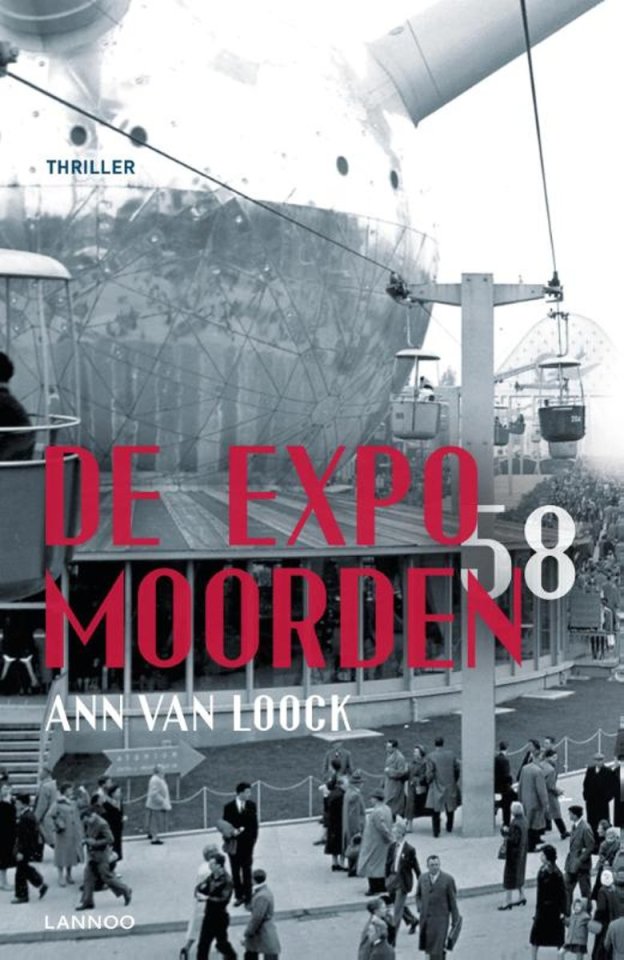
16 patrick conrad "diep in december" (2018)
17 jorge zepeda patterson "zwarte trui" (2018)
18 wolfgang burger "heidelberg requiem" (2016)
19 charles cumming "a divided spy" (2016)
+ charles cumming "the man between" (2018)
20 frank goldammer "the air raid killer" (2018)
+ frank goldammer "a thousand devils" (2018)
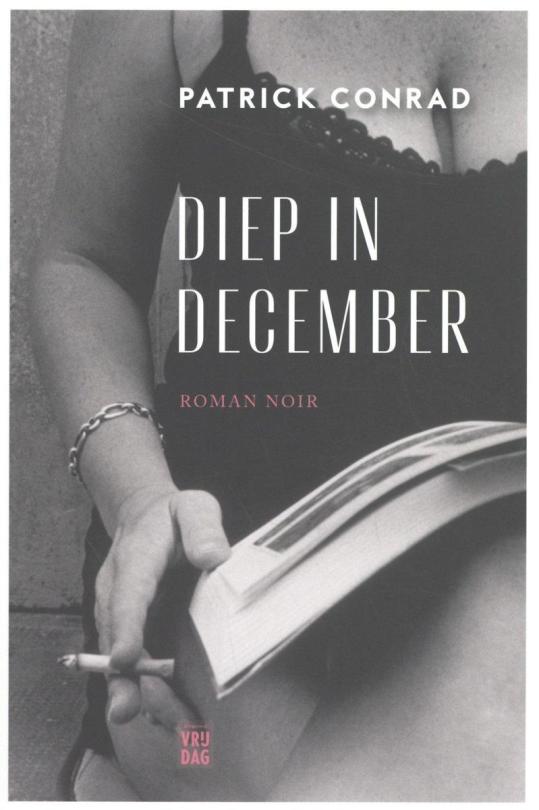
21 andreas norman "stille oorlog" (2018)
22 jesper stein "de onrust" (2018)
+ jesper stein "papa" (2018)
23 luca d'andrea "in de greep van de waanzin" (2018)
24 jo nesbø "macbeth" (2018)
25 hans dooremalen "descartes in amsterdam: filosofische detective" (2018) /
chris pavone "the expats" (2012)

klassikstompf:
01 wiliam h gass "the william h gass reader" (2018)

02 louis armand "breakfast at midnight" (2012)
+ louis armand "the combinations" (2016)
+ louis armand "canicule" (2013)
+ louis armand "cairo" (2014)
03 andrew crumey "the great chain of unbeing" (2018)
04 viv albertine "throw away unopened" (2018)
05 daniela cascella "singed" (2017)

06 ted geltner "blood, bone, & marrow: a biography of harry crews" (2017)
07 steve erickson "zeroville" (2007)
08 olga tokarczuk "drive your plow over the bones of the dead" (2018)
09 julián ríos "the house of ulysses" [] (2010)
+ julián ríos "poundemonium" [1997]
10 daniel mendelsohn "an odyssey: a father, a son, and an epic" (2017)

11 giorgio van straten
"in search of lost books: the forgotten stories of eight mythical volumes" (2017)
12 pascal mercier "night train to lisbon" (2004)
13 tony white "the fountain in the forest" (2018)
14 alejandro zambra "not to read" (2018)
15 gabriel josipovici "the cemetery in barnes" (2018)
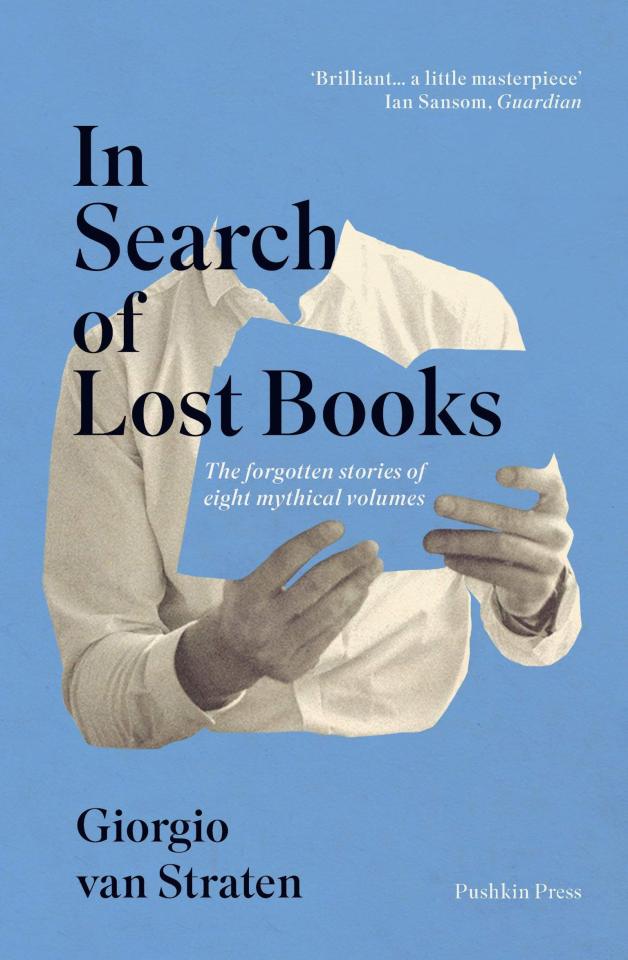
16 lucy ives "impossible views of the world" (2017)
17 matthew herbert "the music: a novel through sound" (2018)
18 ann quin "the unmapped country: stories & fragments" (2018)
19 stephen fry "mythos" (2017) & "heroes" (2018)
20 johan swinnen "happening: de aanslag op de Inno" (2017)
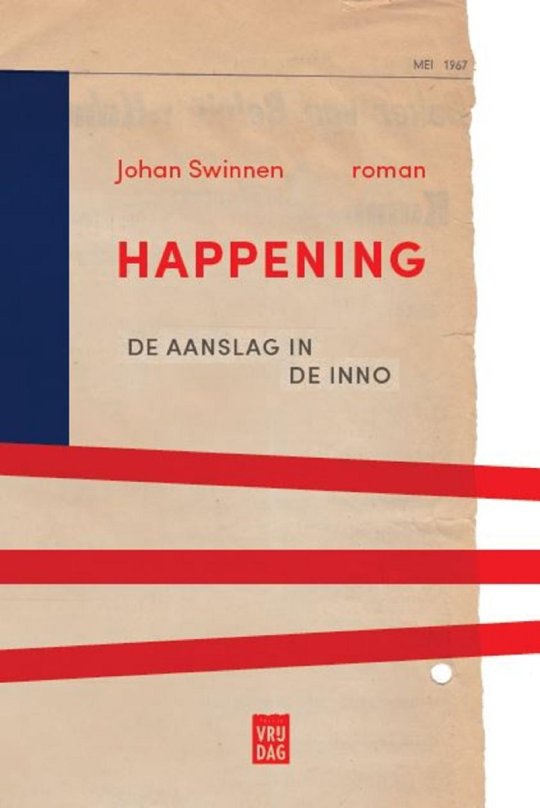
21 ermanno cavazzoni "the nocturnal library" (2018)
22 richard powers "the overstory" (2018)
23 alain robbe-grillet "project for a revolution in ny" (1972)
24 melchior vischer "second through brain" (2015)
25 bob van laerhoven "return to hiroshima" (2018)
+ bob van laerhoven "dossier feuerhand" (2017)
+ bob van laerhoven "dangerous obsessions" (2015)
+ bob van laerhoven "heart fever" (2018)

gedächtnisstompf:
01 jacques derrida "geschlecht III: sexe, race, nation, humanité" (2018)
+ jacques derrida "le goût du secret: entretiens 1993-1995" (2018)

02 tom cohen, claire colebrook & j hillis miller
"theory & the disappearing future: on deman, on benjamin" (2011)
03 hannah arendt "het waagstuk van de politiek:
over politieke leugens en burgerlijke ongehoorzaamheid" (2018)
+ dirk de schutter "hannah arendt: politiek denker" (2015)
04 serge andré "les perversions #1: le fétichisme" (2013)
+ serge andré "les perversions #1: le sadisme" (2013)
+ serge andré "les perversions #1: le masochisme" (2013)
05 ger groot "4 ongemakkelijke filosofen: nietzsche, cioran, bataille, derrida" (2003)

06 mark fisher "k-punk: the collected & unpublished writings (2014-2016)" (2018)
07 molier, ellian, rijpkema (eds) "de strijd om de democratie:
essays over democratische zelfverdediging" (2018)
08 florentijn van rootselaar "filosofisch veldwerk:
grote filosofen van nu over leven in barre tijden" (2018)
09 lieven de cauter "van de grote woorden & kleine dingen" (2018)
10 nemanja mitrovic
"the (im)possibility of literature as the possibility of ethics" (2017)

11 sue prideaux "i am dynamite! a life of friedrich nietzsche" (2018)
12 paul farley & michael symmons roberts "deaths of the poets" (2018)
13 erik bledsoe (ed) "perspectives on harry crews" (2001)
14 kailash c baral & r radhakrishan (eds)
"theory after derrida: essays in critical praxis"(2018)
15 agnes czajka & bora isyar (eds)
"europe after derrida: crisis & potentiality" (2016)

poesisstompf:
01 john cooper clarke "the luckiest guy alive" (2018)
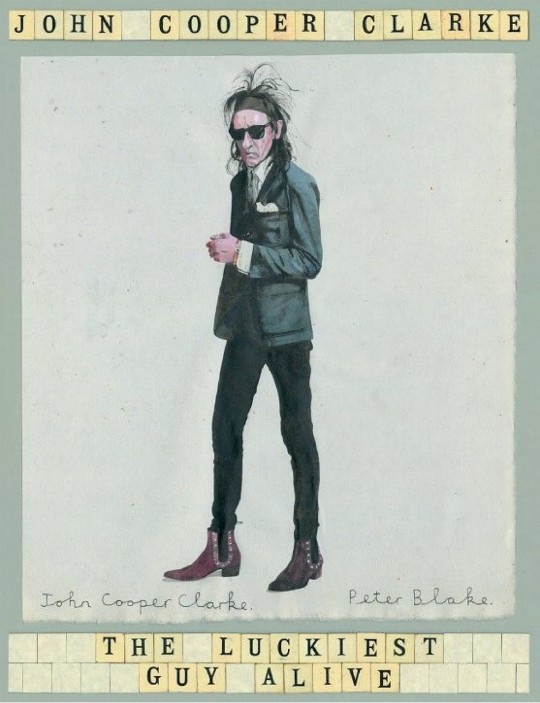
02 kate tempest "running upon the wires" (2018)
03 robin robertson "the long take" (2018)
04 david austin "dread poetry & freedom:
linton kwesi johnson & the unfinished revolution" (2018)
05 tommy pico "junk" (2018)
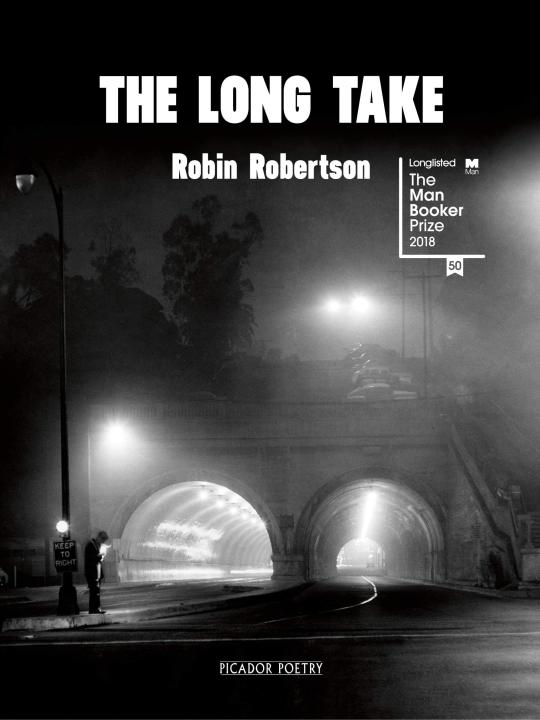
platterstompf:
01 power, devereux, & dillane (eds)
"heart & soul: critical essays on joy division" (2018)
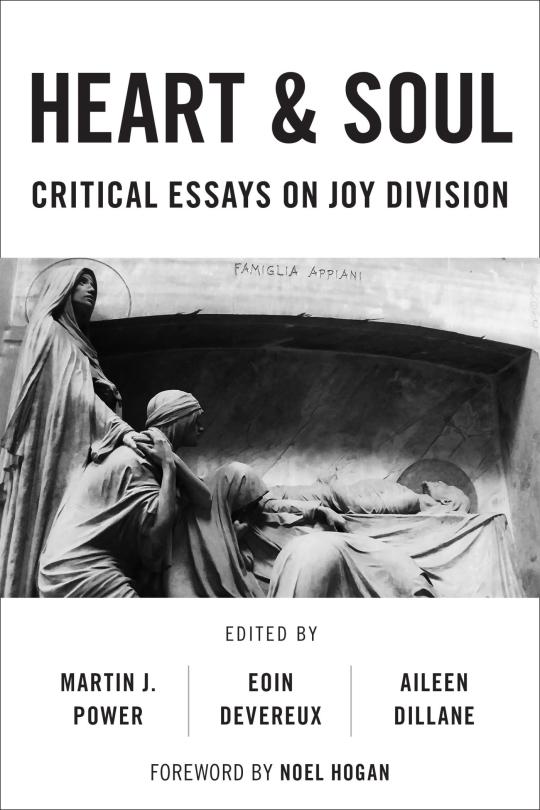
02 michael glasmeier & ursula block (eds) "broken music: artists' recordworks" (2nd edition 2018)
03 mark e smith "messing up the paintwork: the wit & wisdom of mark e smith" (2018)
04 willy dirickx (ed) "de brassers" (2018)
05 tommy mackay "40 odd years of the fall" (2018)

06 john h baker "the art of nick cave: new critical essays" (2013)
07 will oldham "songs of love & horror: collected lyrics of will oldham" (2018)
+ alan licht (ed) "will oldham on bonnie 'prine' billy" (2012)
08 michael goddard & benjamin halligan
"mark e smith & the fall: art, music, & politics" (2013)
09 daniel kane "do you have a band? poetry & punk rock in nyc" (2017)
10 bendle "permanent transience" (2015)

11 david grubbs "now that the audience is assembled" (2018)
12 nick soulsby "swans: sacrifice & transcendence (the oral history)" (2018)
+ michael gira "the egg: stories" (2018)
13 robert young & irmin schmidt "all gates open: the story of can" (2018)
14 mike goldschmith "discord: the story of noise" (2012)
15 bruce russell
"gilded splinters: essays & aphorisms towards an aesthetic of noise" (2018)
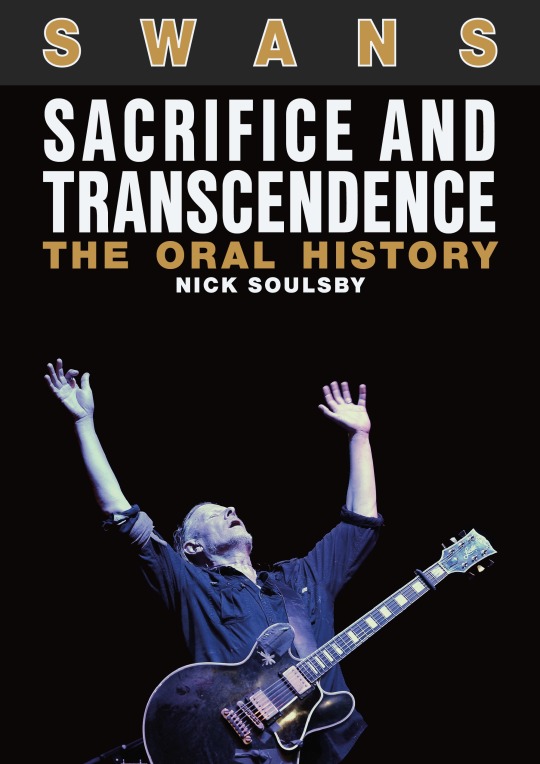
16 philippe robert "agitation frite" (2018)²
+ philippe robert "action friite" (2018)
+ philippe robert "action frIIIte" (2018)
17 guillaume belhomme, philippe robert, ea "le son du grisli:
varèse, tzara, mochizuki & cave" (2018)
18 david stubbs "future days: krautrock & the building of modern germany" (2018)
+ david stubbs "mars by 1980: the story of electronic music" (2018)
19 blixa bargeld "europa: una letania" [2009] (2018)
20 chris bohn (ed) "the wire"

21 richard hirst (ed)
"we were strangers: stories inspired by unknown pleasures" (2018)
22 françois girodineau "nick cave & the bad seeds: tender prey" (2018)
23 mick middles "the fall" (2009)
24 jim dooley "red set: a history of gang of four" (2018)
25 mats gustafsson
"discaholics! record collector confessions vol I (2nd ed)" (2018) /
+ rob van scheers "drie akkoorden & de waarheid: muzikale levenslessen" (2014)
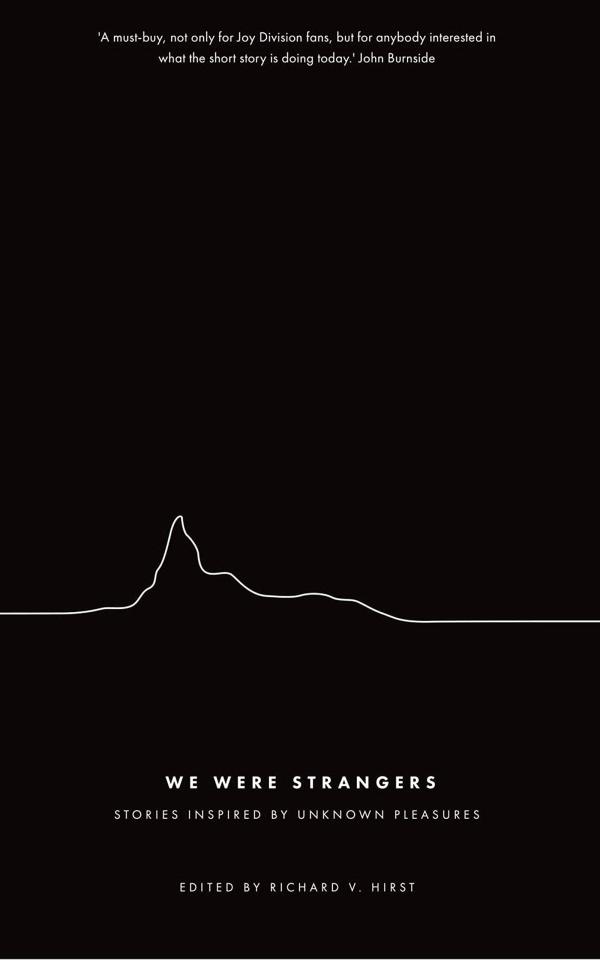

stagestompf:
01 ian rankin & rona munro "rebus: long shadows" (2018)
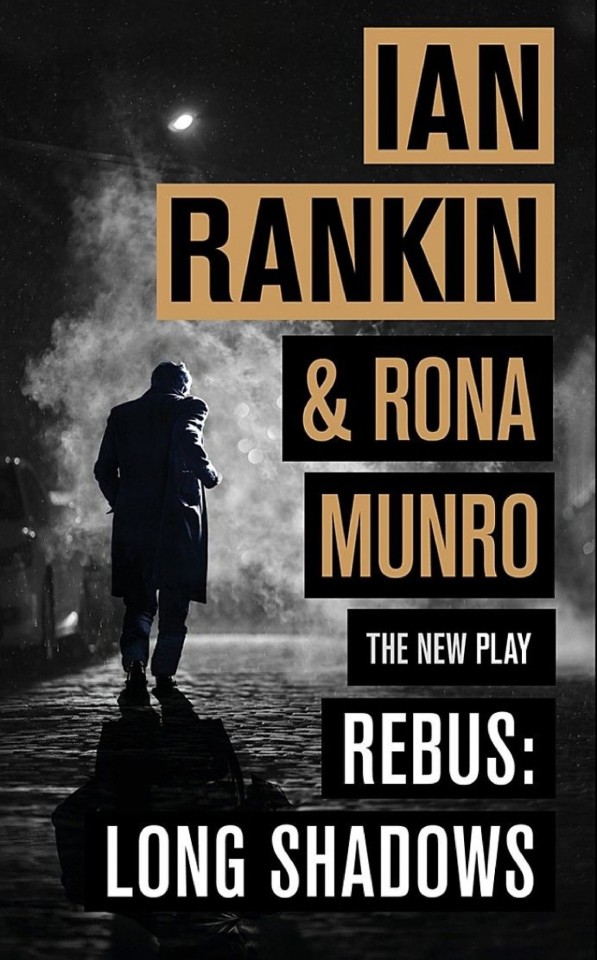
humorstompf:
01 robin ince
"i'm a joke & so are you: a comedian's take on what makes us human"
(2018)
02 simon munnery "how to live" (2018)
03 lucien randall "disgusting bliss: the brass eye of chris morris" (2011)

bilderstompf:
01 michael glasmeier & ursula block (eds)
"broken music: artists' recordworks" (2nd edition 2018)
02 thomas bernhard & ferry radax "thomas bernhard: 3 days" (2016)
03 ed van der elsken "love on the left bank" (2002)
04 philippe monsel "francis bacon" (1994)

05 paul duncan & jürgen müller (eds)
"film noir plus taschen's top 50 pick of noir classics from 1940-1960" (2017)
06 cuauhtémoc medina "manifesta 9: the deep of the modern" (2012)
07 julian schnabel: permanently becoming & the architecture of seeing" (2012)
08 reinhard kleist "nick cave & the bad seeds: an art book" (2018)
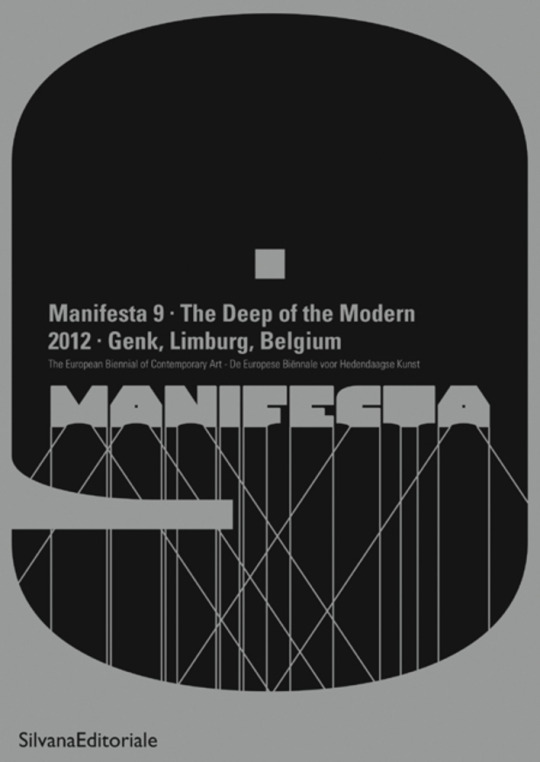
wissenschaftstompf & other distractions:
01 brian cox & robin ince
"how to build a universe: an infinite monkey cage adventure" (2017)
02 patrick moore & chris north
"the sky at night: answers to questions from across the univers" (2012)
03 chip carter "obsessed with star trek" (2011)
04 leon hunt "danger:diabolik" (2018)
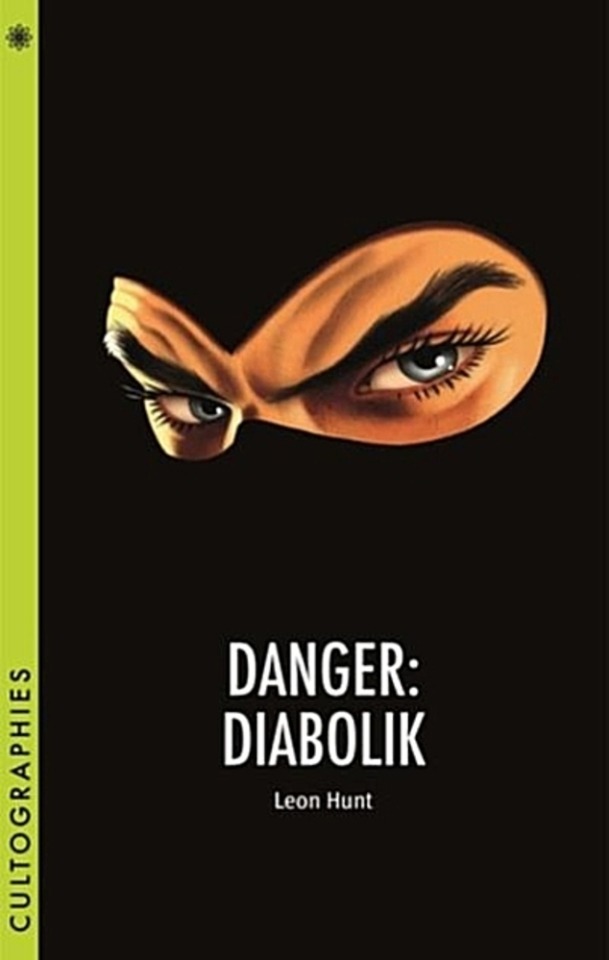
cyclostompf:
01 jean cléder "petite éloge de la course cycliste" (2018)

02 max leonard "higher calling: cycling's obsession with mountains" (2018)
03 colin o'brien
"giro d'italia: the story of the world's most beautiful bike race" (2018)
04 velominati
"wielergoden: de meest heldhaftige renners ooit 38 heroïsche verhalen” (2018)
05 william fotheringham "sunday in hell" (2018)
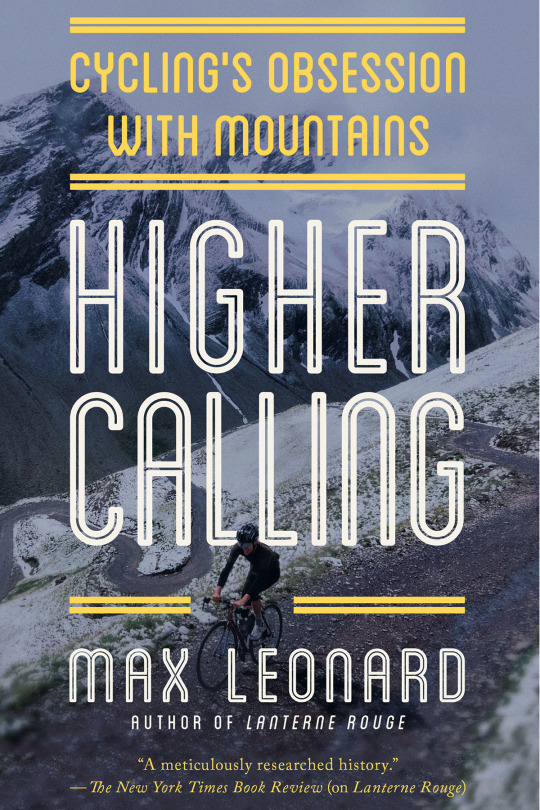
06 jonas heyerick (ed) "bahamontes" (magazine) o.a. extra editie de giro (2018)
07 jorge zepeda patterson "zwarte trui" (2018)
08 dirk jan roeleven "de nieuwe fiets: villar san constanzo - a'dam" (2018)
09 frederik baeckelandt "gino bartali (les héros 03)" (2018)
10 chris sidwells "the call of the road: the history of cycle road racing" (2018)
10 john dowie "the freewheeling john dowie:
a comedian, a bike, & a tent, what could possibly go right?" (2018)
12 edward pickering "the ronde:
inside the tour of flanders, the world's toughest bike race" (2018)
13 charles pope "a golden age of cycling" (2018)
14 roger gilles "women on the move:
the forgotten era of women's bicycle racing" (2018)
15 peter cossins "the first tour de france:
60 cyclists & 19 days of daring on the road to paris" (2017)
16 paul maunder "the wind at my back: my cycling life" (2018)
+ paul maunder "rainbows in the mud" (2017)
17 giacomo pellizzari "het geheim van de eenzame fietser" [2015] (2017)
18 dries de zaeytijd & fons leroy "25 jaar kweekvijver van koerstalent" (2018)
19 peter sagan "my world" (2018)
20 bradley wiggins "icons: my inspiration, my motivation, my obsession" (2018)
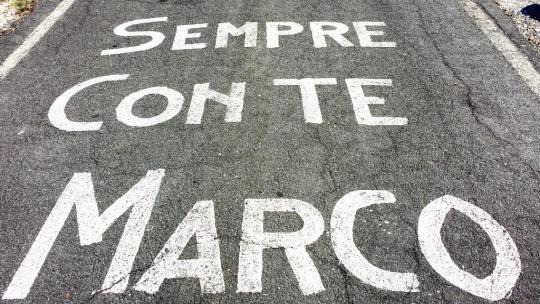
most pleasing purchases:
01 jayne county "man enough to be a woman" (1996)
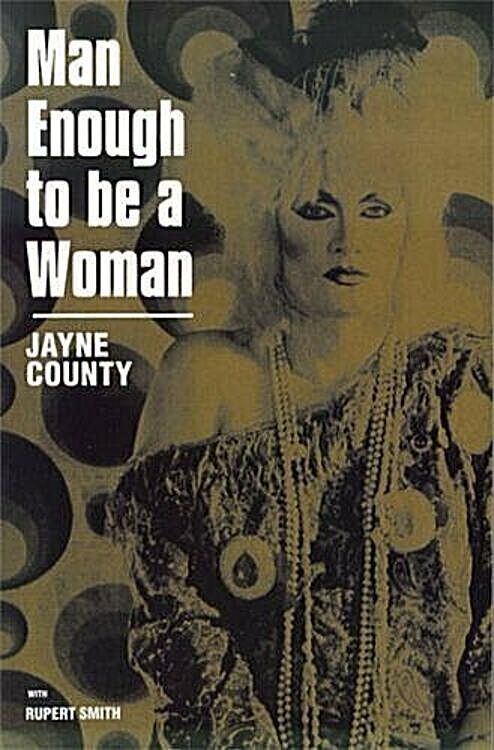
02 berns, moyaert, & van tongeren (eds)
"de god van denkers en dichters: opstellen voor samuel ijsseling" (1997)
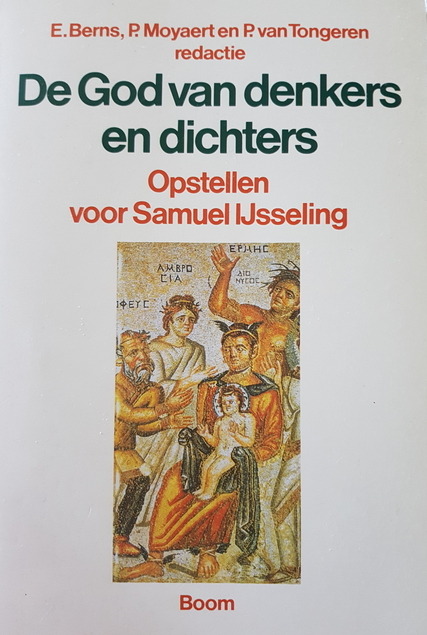
03 anselm kiefer
"l'art survivra à ses ruines: anselm kiefer au collège de france" (2011)
04 ludger lütkehaus
"'ruhe. grösse, sonnenlicht': friedrich nietzsche in sils-maria" (2014)
05 paul raabe "spaziergange durch nietzsches sils-marie" (1994)

… tsundoku !
may your home be safe from tigers,
leroy,
x
HNY!
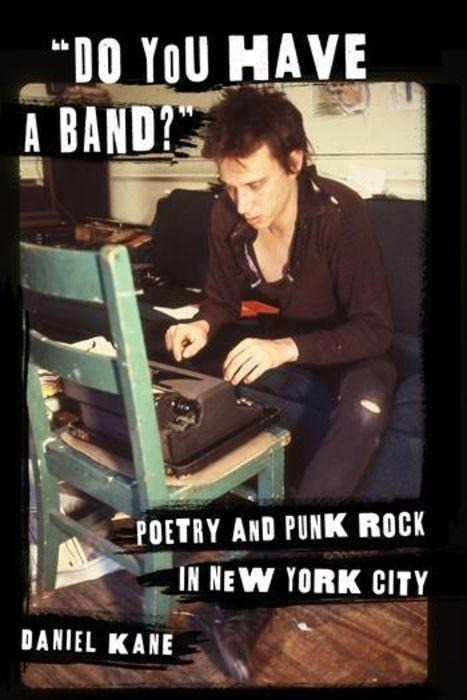
find me on LT:
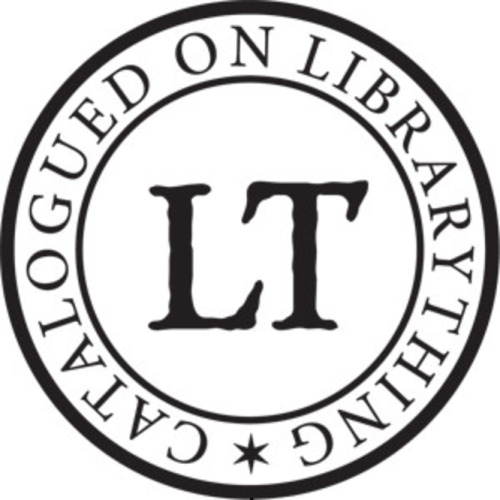
TBR... PILING UP ...
postcyberpunkstompf:
adam roberts "adam (the aftermath 02)" (2018)
eric brown "the martian simulacra: a sherlock holmes mystery" (2018)
gary gibson "scienceville & other worlds" (2018)
greg egan "phoresis" (2018)
ian mcdonald "time was" (2018)
ian whates & tom hunter (eds)
"2001: an odyssey in words: celebrating the centenary of arthur c clarke's birth"
james lovegrove "firefly: big damn hero" (2018)
james patrick kelly "the promise of space & other stories" (2018)
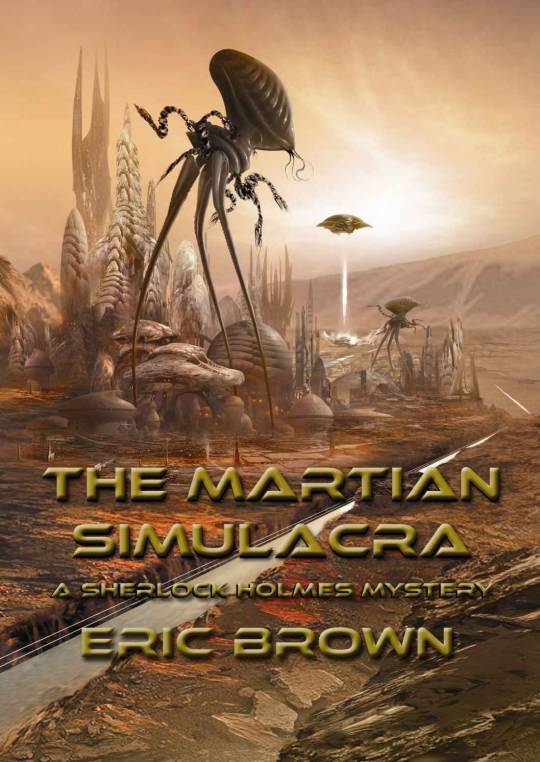
jeff noon "a man of shadows" (2017)
+ jeff noon "the body library" (2018)
kevin j anderson "selected stories: science fiction vol I" (2018)
rich larson "tomorrow factory: collected fiction" (2018)
seb doubinsky "missing signal" (2018)
stephen baxter "redemption" (2018)
+ stephen baxter "xelee: vengeance" (2018)
steve erikson "rejoice" (2018)
tom schweterlitsch "the gone world" (2018)
& maybe, just maybe:
jay key "how to pick up women with a drunk space ninja" (2018)
+ jay key "how to win a pit fight with a drunk space ninja" (2018)

polarstompf:
dario correnti "heimwee naar bloed" (2018)
giancarlo de cataldo "suburra" (2017)
matthew pearl "the dante chamber" (2018)
victor del árbol "a million drops" (2018)
zygmunt miloszewski "priceless" [2013] (2018)

4 notes
·
View notes